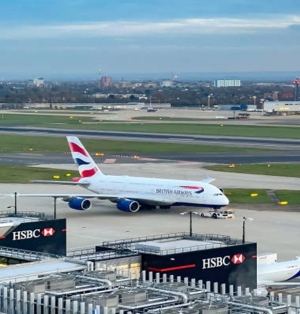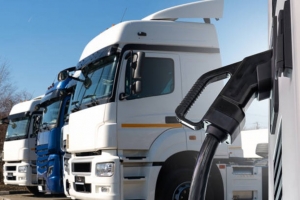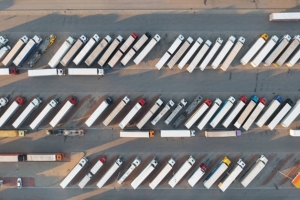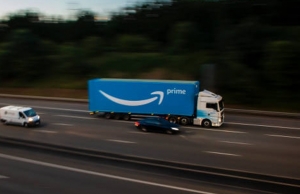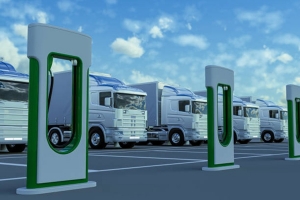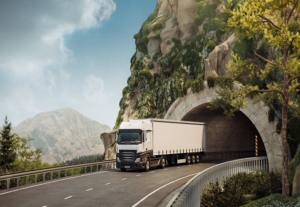Test Owner
Heathrow Submits £49bn Third Runway Proposal to Government
Heathrow Airport has formally submitted its plans for a third runway to the government, with Transport Secretary Heidi Alexander set to review the proposal. The next stage will see a public consultation on the national policy framework for airports, which outlines how approval for such a project can be granted. Only after this process can a full planning application be lodged.
The £49 billion scheme would increase Heathrow’s capacity by 276,000 flights a year, bringing the total to 756,000 annually. Plans include diverting part of the M25 into a tunnel beneath the new runway. Alongside the proposal, the Department for Transport is preparing to launch an Airspace Design Service to redesign the UK’s flight paths, aiming to improve efficiency and reduce delays — a move seen as essential for accommodating the extra air traffic.
Other proposals, including a shorter runway plan from the Arora Group, will also be considered. Logistics UK’s Senior Policy Manager, Alexandra Herdman, stressed the importance of ensuring air freight growth is included in the winning design, noting Heathrow’s role as the UK’s largest port by value and a vital link for global trade.
Meanwhile, the government is expected to approve plans allowing Gatwick’s second “emergency” runway to be used regularly, with conditions on noise levels and public transport improvements. A final decision is anticipated in the autumn.
CPR Training to Become Part of UK Driving Theory Test
From early 2026, learner drivers in the UK will be tested on vital cardiopulmonary resuscitation (CPR) skills as part of the car and motorcycle theory exam. The Driver and Vehicle Standards Agency (DVSA) hopes the move will equip more people with the knowledge to act in life-threatening emergencies, particularly as drivers are often first to arrive when someone suffers a cardiac arrest.
The updated test will include questions on CPR techniques and how to use a defibrillator — a device that delivers an electric shock to help restart the heart. Official study materials have already been revised, covering topics such as “Who can use a public access defibrillator?” with the simple answer being “anyone”. Defibrillators are designed to be easy to operate, giving clear instructions so that even untrained bystanders can step in to help.
Evidence shows that if CPR and defibrillation are administered within the first few minutes of collapse, survival rates can reach up to 70%. Without prompt action, that figure falls to fewer than one in ten. The NHS advises delivering firm chest compressions — 5 to 6cm deep at a rate of 100 to 120 per minute — until professional help arrives.
James Cant, chief executive of Resuscitation Council UK, welcomed the change, saying it will ensure millions of new drivers gain the confidence to step in and potentially save lives during a cardiac arrest.
HGV Fleets Slow to Embrace EV Shift, Brokers Report
New research reveals that the transition to electric vehicles (EVs) among commercial fleets remains sluggish - particularly in the heavy goods vehicle (HGV) sector. A survey conducted by Direct Commercial Limited (DCL) found only 13% of brokers believe their clients are adapting well to electric or hybrid models, while nearly half say operators are struggling or not transitioning at all.
The readiness for incoming sustainability regulations also appears low, with just 9% of brokers saying clients are somewhat prepared. The main barriers in the HGV space include limited electric truck availability, range anxiety, and a lack of charging infrastructure. While some movement is being seen in light commercial vehicles (LCVs), electric LCVs still represent a small slice of total fleet volumes.
Despite registrations of zero-emission HGVs doubling earlier this year, they still account for just 1% of the market - highlighting the long road ahead. Joe Hantson, Deputy CEO of DCL, emphasised that while fleets support greener policies, they are progressing at different speeds due to real-world operational challenges.
As the government ramps up its zero-emission vehicle mandate, DCL says brokers will play a key role in helping clients navigate new requirements, manage risk, and adapt to the evolving EV landscape - particularly given their significant influence across leasing channels in the fleet industry.
DVSA Tightens Oversight on Light Goods Vehicles to Tackle Rising Risks
The Driver and Vehicle Standards Agency (DVSA) is launching a new initiative aimed at strengthening compliance among light goods vehicle (LGV) operators over the next year. With a growing number of serious incidents involving LGVs, the agency plans to focus roadside enforcement and engagement efforts on higher-risk sectors, particularly construction and vehicle transport.
Despite the fact that many LGV operators take safety seriously, a worrying proportion continue to operate without proper checks in place. DVSA data shows that over half of LGVs inspected annually lead to enforcement action, often due to dangerous defects, overloading, or poorly secured loads. In fact, LGVs fail their MOTs at a rate four times higher than HGVs, and they’re involved in significantly more serious road accidents.
The DVSA’s strategy includes collaborating with trade associations to promote best practices while also increasing targeted enforcement. With ten times more LGVs than HGVs on UK roads, a more focused approach is needed to encourage compliance and protect all road users.
Tragically, the importance of this work is underscored by incidents like the death of 11-year-old Harry Dennis, killed by an unsecured scaffolding board. The DVSA is urging operators to take responsibility, follow official guidance, and help raise safety standards across the industry.
Amazon Expands AI Capabilities to Boost Innovation and Sustainability
Amazon is doubling down on its investment in artificial intelligence, using the technology to enhance customer experiences and support its ambition to become net zero by 2040. CEO Andy Jassy described AI advancements as transformative, noting that innovations like generative AI are reshaping what’s possible for both consumers and businesses.
With over two decades of AI experience, Amazon has long embedded machine learning into its operations. Initiatives like Amazon Science were launched to develop solutions that enhance user experiences, solve operational challenges, and work alongside engineering teams. Notably, voice assistant Alexa, introduced in 2014, continues to evolve through natural language processing.
Sustainability is also a major focus of Amazon’s AI strategy. By leveraging AI, the company is optimising warehouse operations, forecasting demand, improving packaging efficiency, and managing carbon emissions more effectively. According to Chief Sustainability Officer Kara Hurst, AI is helping to drive improvements in energy and water usage across Amazon’s facilities, marking just the beginning of its role in environmental efforts.
The launch of Amazon Nova, a suite of next-generation AI models, marks a new chapter. Designed to process text, images, and video, Nova supports a range of content creation needs. SVP Rohit Prasad said it addresses key developer challenges and delivers improved speed, personalisation, and cost efficiency across multiple platforms.
Hauliers Push Back Against Driver Pay Criticism Amid Cost Pressures
Haulage operators have hit back at recent criticism from HGV drivers who accused them of underpaying and fuelling job shortages through “greed”. The backlash follows claims from some drivers that low wages are discouraging new entrants and threatening the future of the profession, amid predictions that HGV driving roles could vanish by 2029.
However, industry leaders say the criticism overlooks the growing financial strain on transport firms. Michael Doherty of the Doherty Group highlighted soaring equipment costs, including a £60,000 rise in lorry prices and £40,000 increases for specialist trailers. He also cited the burden of higher fuel costs, employer National Insurance hikes, and tight operating margins, warning that these pressures are forcing smaller firms to shut down or be absorbed by larger operators.
Justin Hyde from Mastermac Haulage argued that hauliers are working on razor-thin margins, often below 3%, and cannot afford inflated wage demands. He pointed to significant upfront investments, with trucks costing £140,000 and driver wages already averaging around £50,000, while many full-load jobs struggle to fetch even £400.
CLF Commercials’ Craig Foster added that while drivers are using the shortage to push for better pay, the industry cannot sustain rising costs and wage hikes simultaneously. He warned that the sector’s finances are more stretched than ever.
UK and Germany Sign Historic Pact Focused on Defence, Trade and Innovation
On 17 July 2025, Prime Minister Sir Keir Starmer hosted German Chancellor Friedrich Merz in London to sign a landmark treaty—the first formal agreement between the UK and Germany since the Second World War. While the treaty focused largely on defence and migration, it also laid the foundation for enhanced economic and technological cooperation.
One key section, titled Economic Growth, Resilience and Competitiveness, outlined joint commitments to boost job creation, support digital innovation, and pursue a sustainable industrial transformation. Both governments agreed to address shared vulnerabilities and align their policies to build a greener, more resilient economy.
The agreement placed a strong emphasis on green energy, with both nations pledging to capitalise on the renewable potential of the North Sea and invest in technologies that support the transition to net zero. Economic opportunity through environmental action was a clear shared priority.
Technology and research also featured heavily, with Starmer and Merz agreeing to structured collaboration on emerging and critical technologies, including artificial intelligence. Regular exchanges between both countries' scientific and innovation communities were promised, with a focus on ensuring the secure and responsible use of new technologies to tackle future global challenges.
Nissan Unveils UK’s First Shared Charging Hub for Electric HGV Fleet
In a landmark move for the UK automotive sector, Nissan has launched the country’s first private, shared charging facility dedicated to electric heavy goods vehicles (eHGVs). Located at the Sunderland plant, the £1.4 million project marks the creation of a fully electric supply chain – delivering materials in and transporting completed vehicles out – all while supporting the company’s wider EV36Zero commitment to sustainable vehicle manufacturing.
The charging hub features seven high-capacity stations that can power up to ten eHGVs at once. It will support a fleet of 25 electric trucks handling daily deliveries from suppliers across the UK, including locations as distant as Derby, and transporting vehicles to and from the Port of Tyne. Collectively, the eHGVs will cover over 2.4 million kilometres each year, cutting 1,500 tonnes of CO₂ emissions.
Developed with partners Fergusons, Yusen, and BCA as part of the Electric Freightway initiative led by GRIDSERVE, this pioneering effort is supported by Innovate UK and the UK Government’s £200 million Zero Emission HGV programme.
Government and industry leaders have hailed the project as a vital step toward greener freight transport. With further plans to open access to other hauliers and expand capabilities, the station sets a powerful precedent for future logistics infrastructure in the UK.
UK Driving Jobs Facing Critical Shortages Amid EV Boom and Industry Shift
As the UK’s automotive sector—now worth around £100 billion—moves towards electrification, new research highlights a looming crisis in key driving roles. While government targets push for 80% electric vehicle (EV) production by 2030, a major shortfall in skilled workers across logistics and maintenance is on the horizon.
HGV drivers are among the most at-risk, with projections suggesting a complete shortage by 2029. Despite efforts to attract more drivers, an ageing workforce and lower-than-average salaries continue to hamper recruitment. Meanwhile, delivery driver roles could see a severe gap by 2037, with tens of thousands of vacancies already reported in 2025 alone.
The rapid rise of EVs is also transforming the needs of the workforce. Vehicle technicians, especially those skilled in EV diagnostics and repair, are in growing demand—yet only 24% of current technicians are EV-qualified. Without targeted investment and training, the UK could face a technician shortfall by 2047.
Not all roles are in decline. Waste collection and car sales jobs are seeing renewed interest, with search demand rising 440% and 83% respectively. As the industry evolves, it’s clear that embracing new technologies and workforce development will be essential in avoiding widespread disruption across the automotive sector.
New £2m Fund Aims to Drive Green HGV Transition in Scotland
The Scottish Government has unveiled a £2 million fund to accelerate the shift towards low-emission Heavy Goods Vehicles (HGVs). The 2025–26 HGV Market Readiness Fund is designed to support collaboration across the freight sector – bringing together hauliers, manufacturers, finance providers and charging infrastructure specialists to help pave the way for a greener road freight future.
This latest initiative follows groundwork laid in 2024 through the HGV Decarbonisation Pathway, which identified key areas for investment and mapped out where infrastructure will be most needed to support zero-emission HGVs across Scotland. Half of the funding has been ringfenced specifically for small and medium-sized operators, who are often most affected by the high costs of decarbonisation.
Transport Secretary Fiona Hyslop highlighted the importance of collective effort: “We’ve learned from our work on bus decarbonisation and are applying those lessons to freight. Smaller firms play a huge role in Scotland’s logistics industry, so it’s vital they aren’t left behind as we move towards net zero.”
Industry leaders have welcomed the move. The Road Haulage Association and Logistics UK both praised the fund, emphasising its potential to ease the financial burden on smaller operators and help overcome key barriers to adopting green technologies within the HGV sector.


